As the coronavirus tightens its grip, jittery shoppers the world over have ransacked supermarkets for long-lasting shelf-stable foods in preparation to go into hermit mode. But pandemic pantries in Chinese households have largely missed one type of non-perishables that people elsewhere have been filling their carts with – canned goods.
The past months have been anything but ordinary. A killer virus is running loose around the globe – and life as we know it has come to a screeching halt.
Over two-fifths of the Earth's population is now housebound amid broadening shelter-in-place orders, painful city lockdowns and calls for social distancing to break the chain of coronavirus transmission.
Perhaps nowhere else is the uncertainty besetting the world amid the COVID-19 outbreak more palpable than in the aisles of grocery stores. Images of winding queues, empty shelves, and fistfights have captured the sweeping sense of unease about what the future holds.
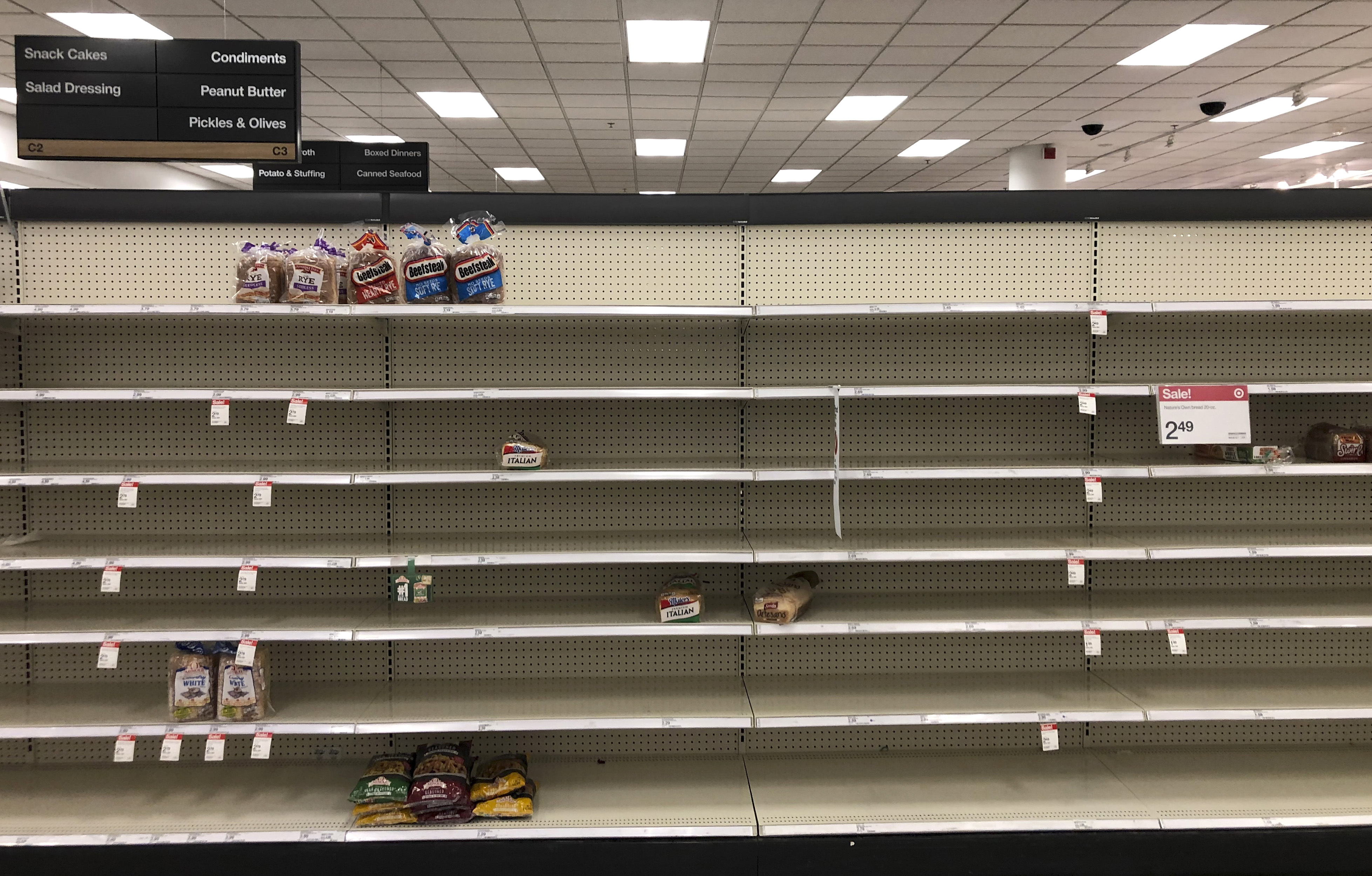
Bred shelves were licked clean at this Target in Abington, Pennsylvania, U.S., March 18, 2020. /AP
Bred shelves were licked clean at this Target in Abington, Pennsylvania, U.S., March 18, 2020. /AP
Restrictions on movement and closed borders have fanned fears that transport bottlenecks might choke food supplies and obstruct delivery trucks from reaching shops in time to replenish fast-disappearing stocks. Panic buying set in and a global shopping frenzy ensued as people readied to hunker down, not knowing when their next grocery run could be.
Can-do attitude
In a sign of the anxious times, canned food – a wartime favorite that harks back to military rations – is making a comeback. Long spurned, scoffed at and sacrificed at the altar of wholesomeness, the humble can has now come to the rescue of shut-ins.
Customers from Manila to Memphis have been stocking their cupboards with baked beans, whole peeled tomatoes, and their ilk to get them through the prospects of prolonged quarantine or self-isolation periods.
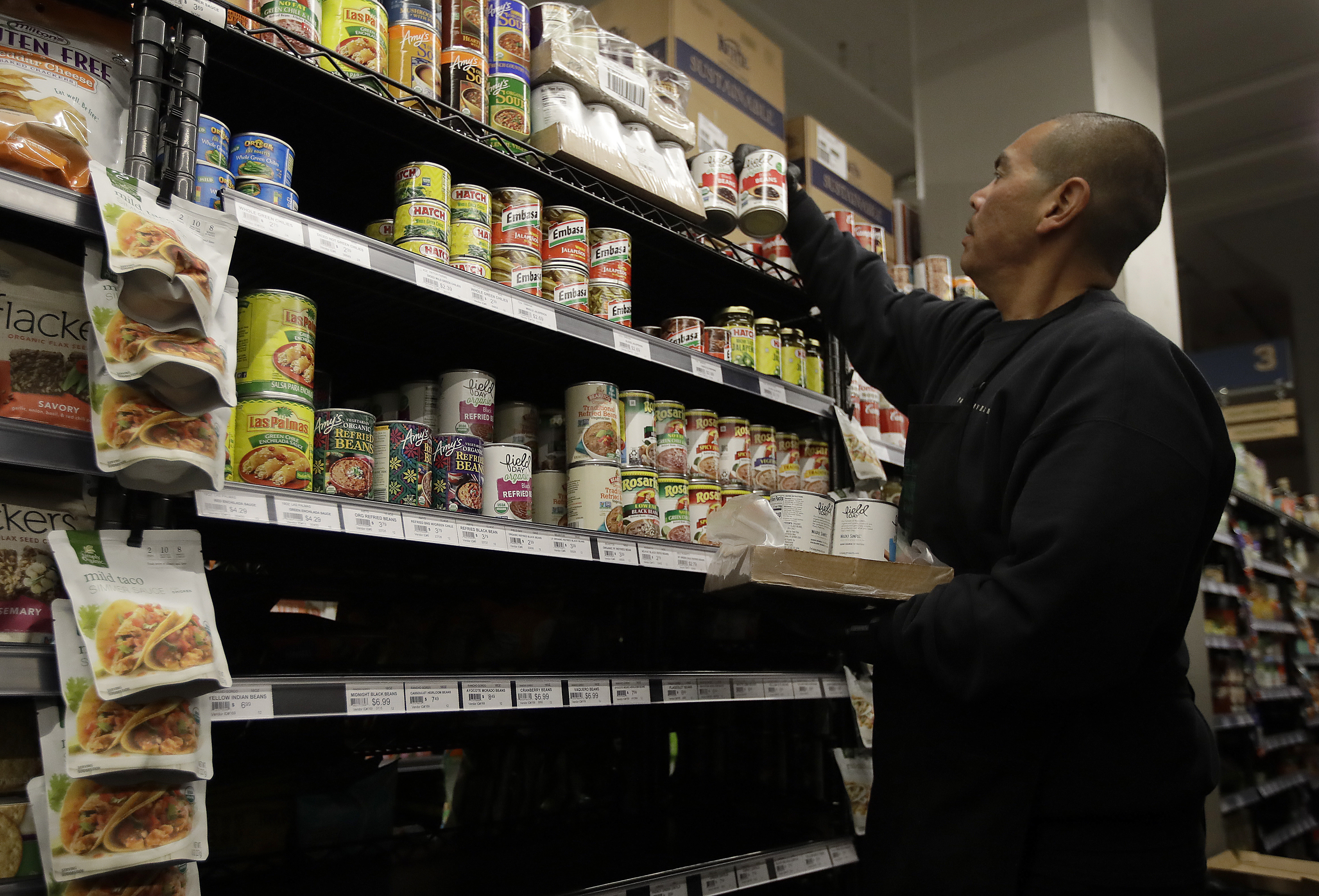
A worker replenishes empty shelves before doors at Gus's Community Market in San Francisco open, March 27, 2020. /AP
A worker replenishes empty shelves before doors at Gus's Community Market in San Francisco open, March 27, 2020. /AP
In the United States, sales of canned meat, chickpeas, and tuna were up by 31.8 percent, 25.6 percent, and 24.9 percent year on year during the last week of February, Nielsen data showed. Over the same period, sales of tinned vegetables in Germany soared by 80 percent and that of canned fruits by 70 percent, according to market intelligence firm Gfk. Increased demand for preserved products was also reported in Ireland and South Africa.
UK retailers have capped the number of cans a customer can nab, with similar limits in place in Singapore and The Philippines. Meanwhile, down under in Australia, one cannery is keeping its production line running nonstop, 24/7 and bringing in more hands to keep up with overwhelming demand.
But long are the days of eating beans straight out of the can. The internet is lifting the lid on a wondrous world of exciting canned concoctions with YouTubers whipping up hearty meals using pantry essentials and foodies reviewing items of different brands to see how they stack up against each other.
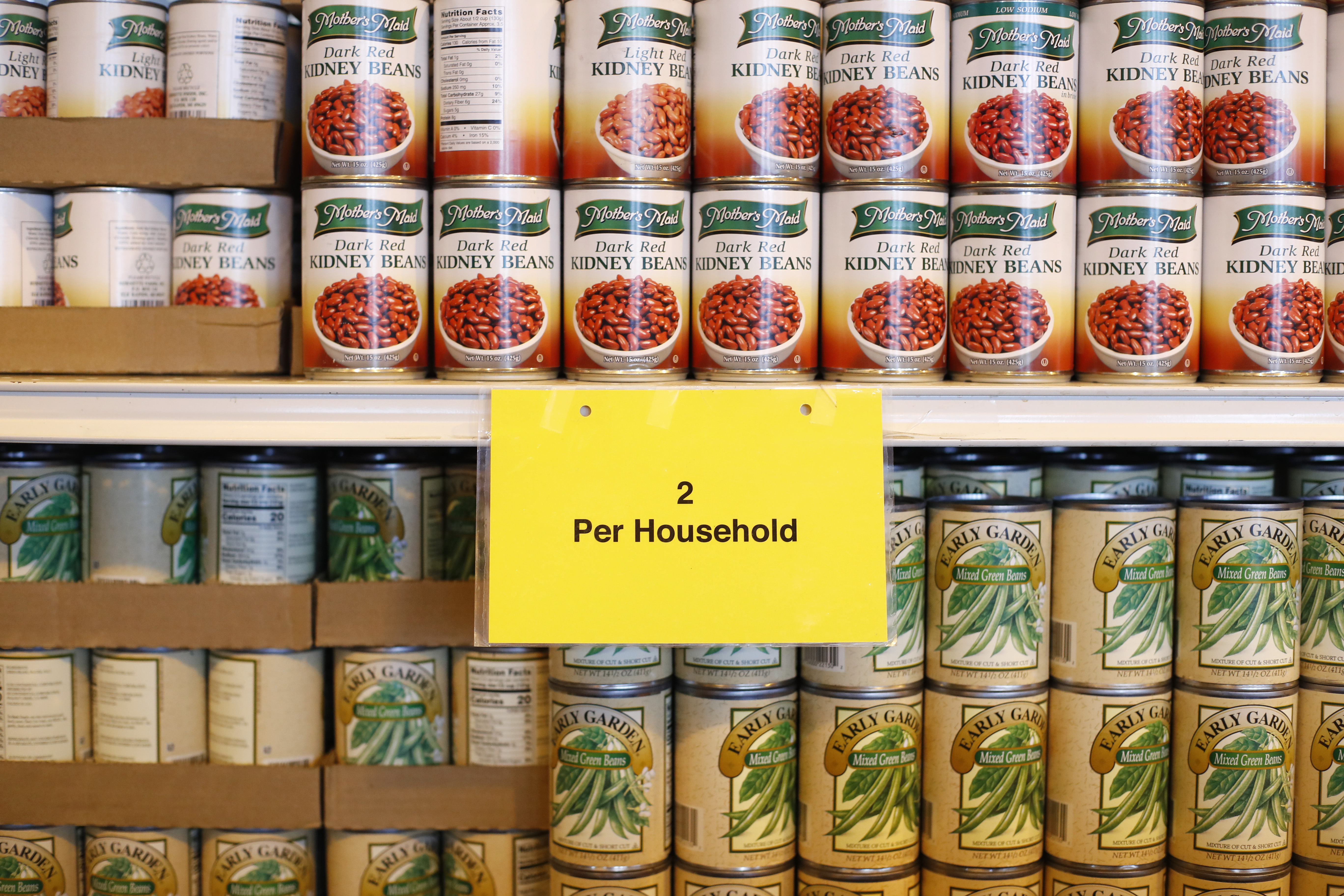
The Brightmoor Connection Food Pantry in Detroit is restricting purchases of canned foods to two per household to prevent hoarding. /AP
The Brightmoor Connection Food Pantry in Detroit is restricting purchases of canned foods to two per household to prevent hoarding. /AP
The world might be making amends, by force or by choice, with a food category that has long been cast to the back reaches of the cupboard and reserved for dinners on a dime, but China seems to be bucking the trend.
No appetite for cans
It's not that Chinese shoppers didn't tweak their grocery lists in light of current events, but they did so differently than their counterparts overseas.
"While most Westerners started hoarding food that will keep for a while, Chinese started buying fresh food to boost their immune system with healthy fresh produce," said Peter Peverelli, founder of Amsterdam-based Eurasia Consult which specializes in China's food and beverage market.
A survey by U.S. consulting firm Oliver Wyman on grocery shopping preferences in China in February, the thick of the outbreak, shows that 80 percent of respondents had changed their diets.
"We saw Chinese consumers stock up rice and instant foods (e.g. instant noodles), consume more fresh vegetables and fruits as a part of 'eating more healthily,' and switch to dairy and frozen products from fresh meats and fresh seafood," Kenneth Chow, engagement manager at Oliver Wyman and lead of the study, told CGTN Digital.
Forty percent of those surveyed upped their purchases of fresh vegetables, while 37 percent increased their consumption of fresh fruits. Forty-three percent also said they were relying more on frozen and chilled products as substitutes for fresh meat and seafood.
"Canned vegetables and canned meats [were] not on top of consumers' minds as alternatives," Chow added. "Our survey shows that 23 percent of respondents reported an increase in canned food purchase volume, while 22 percent of respondents reported a decrease."
Meanwhile, people were snapping up other pantry staples, like rice and pasta, according to the survey. Even sales of instant noodles, a longtime national favorite that in recent years has fallen out of favor with hungry consumers, steamed up during the outbreak.
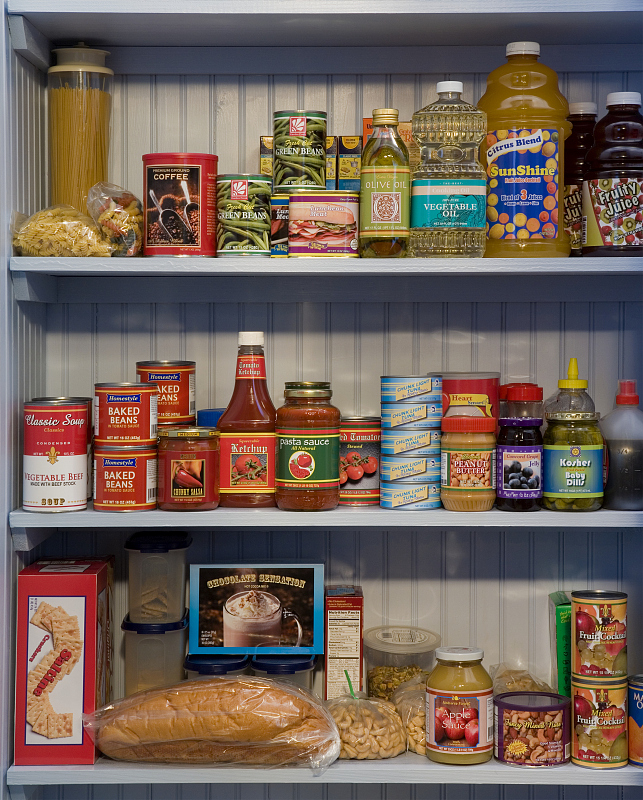
Pantries (and fridges) in households as the world are bursting to the seams with food as people retreat indoors because of COVID-19. /VCG
Pantries (and fridges) in households as the world are bursting to the seams with food as people retreat indoors because of COVID-19. /VCG
Metro supermarket saw 100-percent increase in meat sales in February from the same period in 2019, and 50 percent increase in both flour and vegetable sales, according to Zhou Haibing, general manager of corporate affairs and public relations department at the retail conglomerate.
"Sales of canned foods also witnessed a two-digit growth year on year," he told CGTN Digital. He would not put a number on the sales growth of tinned foods but said it's somewhere between 10 and 50 percent.
Shopping light and online
So why were shoppers skipping survival foods? Analysts say for Chinese shoppers, old habits die hard. They generally favor frequent trips to the market, and not even tumultuous times could change that.
"While Western consumers purchase in bulk for multiple days, Chinese consumers shop more frequently with smaller baskets to ensure freshness, even during this difficult time, and hence relying less on canned food," Chow from Oliver Wyman said.
Concerns about possible disruptions to the supply chain rippled across China in late January, especially after parts of Hubei, the most affected province in the country, were cordoned off to stem the spread of the virus. However, authorities introduced measures to guarantee food shipments, including facilitating the movement of trucks on highways despite travel restrictions.
A robust e-commerce ecosystem also helped maintain a semblance of normalcy. Click-and-mortar chains like Hema and e-grocery platforms continued their operations, allowing users to shop and have their orders delivered to them without setting foot outside their residential compound.
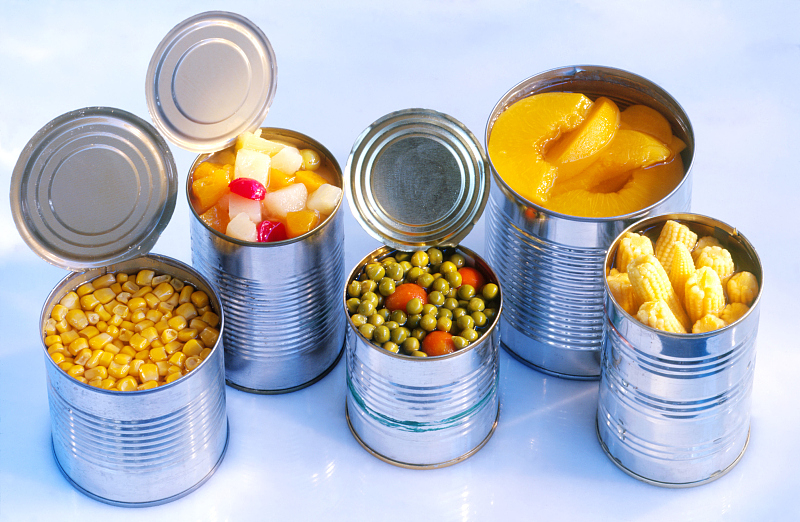
Cans come in different sizes but (mostly) one shape and offer an assortment of ingredients. /VCG
Cans come in different sizes but (mostly) one shape and offer an assortment of ingredients. /VCG
"Daily fresh food delivery is a lifestyle for Chinese consumers. The food delivery system is well developed and supported by several [mobile] applications," said Sofya Bakhta, a marketing strategy analyst at Shanghai-based Daxue Consulting.
"While people have increased their food purchases, they still did it with relatively reasonable proportions and didn't focus on 'survival-military style' products, like canned food," she told CGTN Digital.
Misunderstood food
The COVID-19 outbreak has proven what everyone long suspected – that Chinese people are not fans of food in cans.
According to Daxue Consulting's data, in 2016, per capita consumption of canned products stood at six kilograms in China – just a fraction of the roughly 57 kilograms an EU resident went through over the same year and the whopping 92 kilograms an average American tucked into.
But it hasn't always been like this. There used to be a time when preserved products were the centerpiece of Chinese dinner tables, elevated to a status symbol.
"Canned food used to be regarded as a luxury in the 1950s and through the 1960s and probably even longer. Much of the Chinese canned food output was exported to earn hard currency and a considerable part of the canned food available on the domestic market was 'export sold domestically,'" said Peverelli.
"Eating canned food was like eating Chinese food that was meant for foreigners."
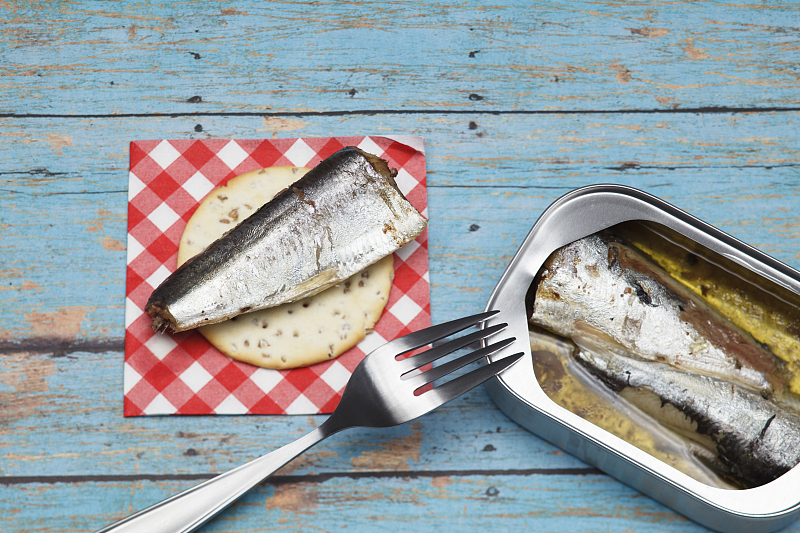
A can of sardines might not be the first choice for a lot of Chinese when hunger strikes. /VCG
A can of sardines might not be the first choice for a lot of Chinese when hunger strikes. /VCG
Their moment in the sun was later eclipsed by changing tastes, perception problems and a string of food safety blips. The once prized possessions have earned a reputation for being cheap, unhealthy and processed eats that have no place in the healthy and nutrition-packed diet that many around the country sought.
Daxue Consulting's Bakhta also believed that the availability and affordability of ready meals and takeaways delivered to the door have dented sales of canned food.
In an age when customer is king, Chinese canneries are not doing enough to whet shoppers' appetite and clean up the industry's image. Brand recognition remains low and innovation in packaging and flavor has been stagnant for years.
"As far as I can remember Chinese green beans have been available in Dutch supermarkets for a few decades in exactly the same cans," Peverelli said, advising manufacturers to engage in storytelling to pique interest.
"Don't sell 'canned mushrooms,' but offer 'canned mushrooms from Zhangzhou,'" he said, referring to the city famed for farming fungus in China's southeast.
With the world going into uncharted territory courtesy of the coronavirus outbreak, perhaps the time is ripe for canneries in China to stop kicking the can down the road and clean the rust off their relationship with shoppers.
(Additional research and reporting by CGTN's Deng Junfang)